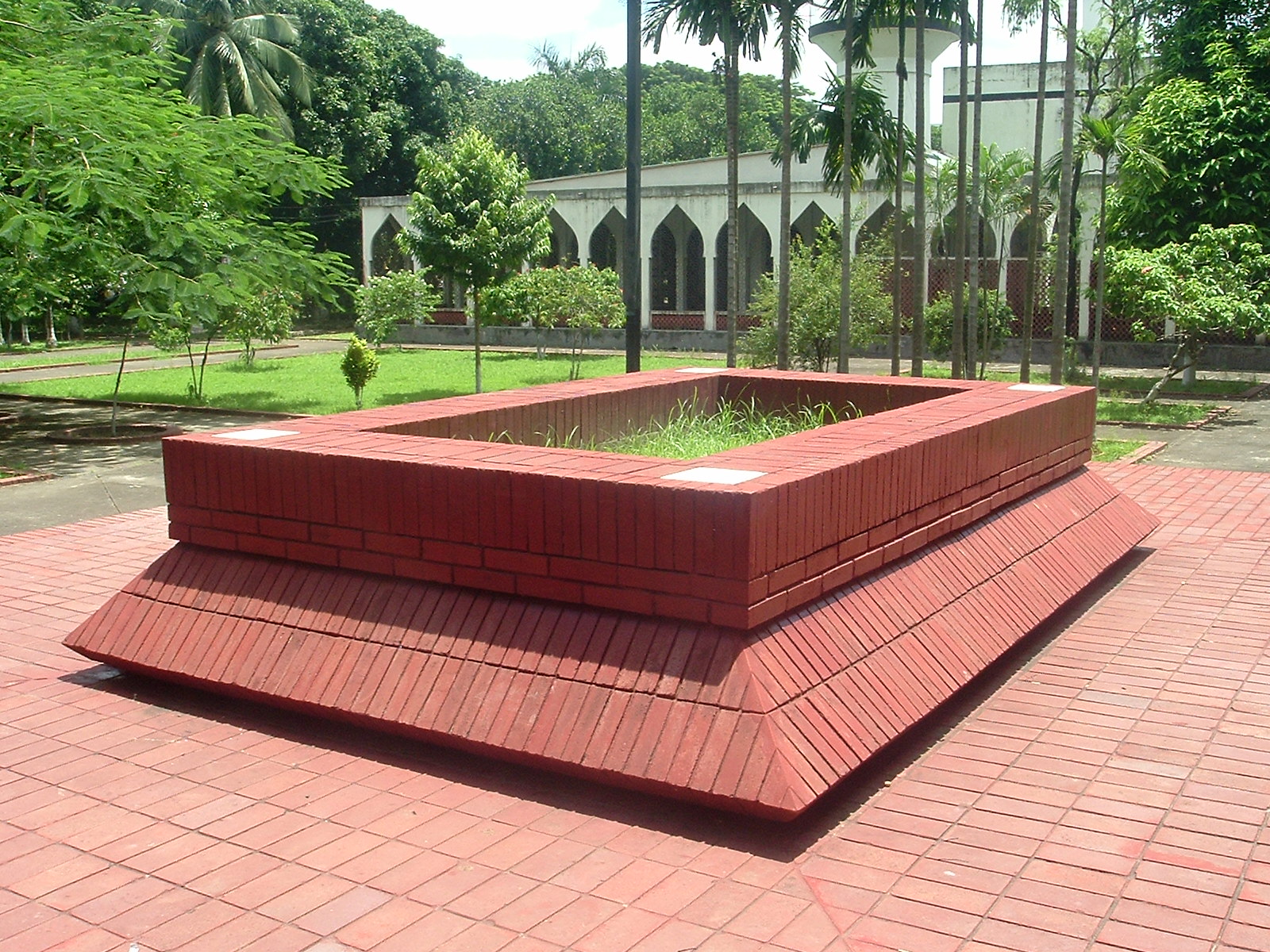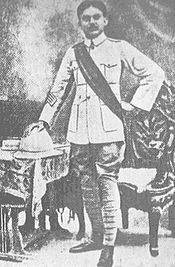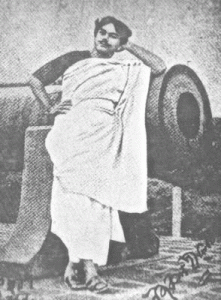Kazi Nazrul Islam Bidrohi Kobi (Rebel Poet)
Posted: 5 Feb,15 on Achievement
Kazi Nazrul Islam (24 May 1899 – 29 August 1976) was a Bengali poet, musician and revolutionary who spearheaded poetic works upholding serious profound rebellion against dictatorship and oppression. He has a outstanding contribution in Bangladeshi literature. Born into a Bengali Muslim Quazi (Kazi) family in the village of Churulia near Asansol in the Burdwan District of Bengal Presidency (now in West Bengal), Nazrul got religious training and filled in as a muezzin at a neighborhood mosque. He learned of poetry, drama, and literature while working with theatrical groups. Nazrul’s writings investigate topics, for example, love, freedom, and revolution; he contradicted all extremism, including religious and gender. All through his career, Nazrul composed short stories, books, and articles however is best known for his lyrics, in which he spearheaded new structures, for example, Bengali ghazals. Nazrul composed and created music for his about 4,000 tunes (counting gramophone records), on the whole known as Nazrul geeti (Nazrul melodies), which are generally prevalent today. Invited by the Government of Bangladesh, Nazrul and his family moved to Dhaka in 1972, where he passed on after four years. Dukhu Miya, the scratch named kabi, Kazi was rebel poet (Bengali dialect: বিদ্রোহী কবি) of Bengal. In any case he was additionally ace in composing poetry on romance, nature, brotherhood, nationalism and a lot more.
Nazrul came to the crest of fame in 1922, which remains his most popular work, winning the appreciation of India’s artistic classes by his portrayal of the rebel whose effect is wild and merciless even as their soul is profound:
I am the unutterable grief,
I am the trembling first touch of the virgin,
I am the throbbing tenderness of her first stolen kiss.
I am the fleeting glance of the veiled beloved,
I am her constant surreptitious gaze…
…
I am the burning volcano in the bosom of the earth,
I am the wild fire of the woods,
I am Hell’s mad terrific sea of wrath!
I ride on the wings of lightning with joy and profundity,
I scatter misery and fear all around,
I bring earth-quakes on this world! “(8th stanza)”
I am the rebel eternal,
I raise my head beyond this world,
High, ever erect and alone! “(Last stanza)” (English translation by Kabir Choudhary)
Distributed in the “Bijli” “বিজলি” (Lightning) magazine, the rebellious language and subject was famously gotten, concurring with the Non-collaboration development — the first and foremost, mass patriot battle of common rebellion against Britis rule.
List of works by Kazi Nazrul Islam
Poetry
- Agni Bina (The Fiery Lute), 1922
- Sanchita (Collected poems), 1925
- Phanimanasa (The Cactus), 1927
- Chakrabak (The Flamingo), 1929
- Satbhai Champa (The Seven Brothers of Champa), juvenile poems, 1933
- Nirjhar (Fountain), 1939
- Natun Chand (The New Moon), 1939
- Morubhaskar (The Sun in the Desert), 1951
- Sanchayan (Collected Poems), 1955
- Nazrul Islam: Islami Kobita (A Collection of Islamic Poems; Dhaka, Bangladesh: Islamic Foundation, 1982)
Poems and songs
- Dolan Chapa (name of a faintly fragrant monsoon flower), 1923
- Bisher Bashi (The Poison Flute), 1924
- Bhangar Gan (The Song of Destruction), 1924 proscribe in 1924
- Chhayanat (The Raga of Chhayanat), 1925
- Chittanama (On Chittaranjan), 1925
- Samyabadi (The Proclaimer of Equality), 1926
- Puber Hawa (The Eastern Wind), 1926
- Sarbahara (The Proletariat), 1926
- Sindhu Hindol (The Undulation of the Sea), 1927
- Jinjir (Chain), 1928
- Pralaya Shikha (Doomsday Flame), 1930 proscribed in 1930
- Shesh Saogat (The Last Offerings), 1958
Short stories
- Rikter Bedan (The Sorrows of Destitute), 1925
- Shiulimala (Garland of Shiuli), 1931
- Byathar Dan (Offering of Pain), 1992
Novels
- Bandhan Hara (Free from Bonds), 1927
- Mrityukshuda(Hunger for Death), 1930
- Kuhelika (Mystery), 1931
Plays and drama
- Jhilimili (Window Shutters), plays, 1930
- Aleya (Mirage), song drama, 1931
- Putuler Biye (Doll’s Marriage), children’s play, 1933
- Madhumala (Garland of Honeysuckle) a musical play, 1960
- Jhar (Storm), juvenile poems and play, 1960
- Pile Patka Putuler Biye (Doll’s Marriage), juvenile poems and play, 1964
Essays
- Joog Bani (The Message of the Age), 1926
- Jhinge Phul (The Cucurbitaccus Flower), 1926
- Durdiner Jatri (The Traveller through Rough Times), 1926
- Rudra Mangal (The Violent Good), 1927
- Dhumketu (The Comet), 1961

Source: Wikipedia
Leave a Reply
One thought on “Kazi Nazrul Islam Bidrohi Kobi (Rebel Poet)”
CATEGORIES
RECENT'S COMMENTED POST
Raw Hasan said "Nice list on the historic places of Bang..."
Web Application Developer (PHP) Needed | ABAC Technologies Ltd said "[…] learn about us, please check w..."
Faria Anan said "Thanks a lot for this describes..."
ABAC Technologies LTD is Top Rated at Upwork said "[…] LTD is a Top Rated Agency at U..."
POPULAR POSTS
Posted by Admin on theFebruary 25th, 2012 with 12 Comments
Posted by Admin on theOctober 23rd, 2014 with 11 Comments
Posted by Admin on theJanuary 6th, 2012 with 8 Comments
















Dear sir. Thanks for your great works.I want to last pen ok nazrul islam.
Thanks